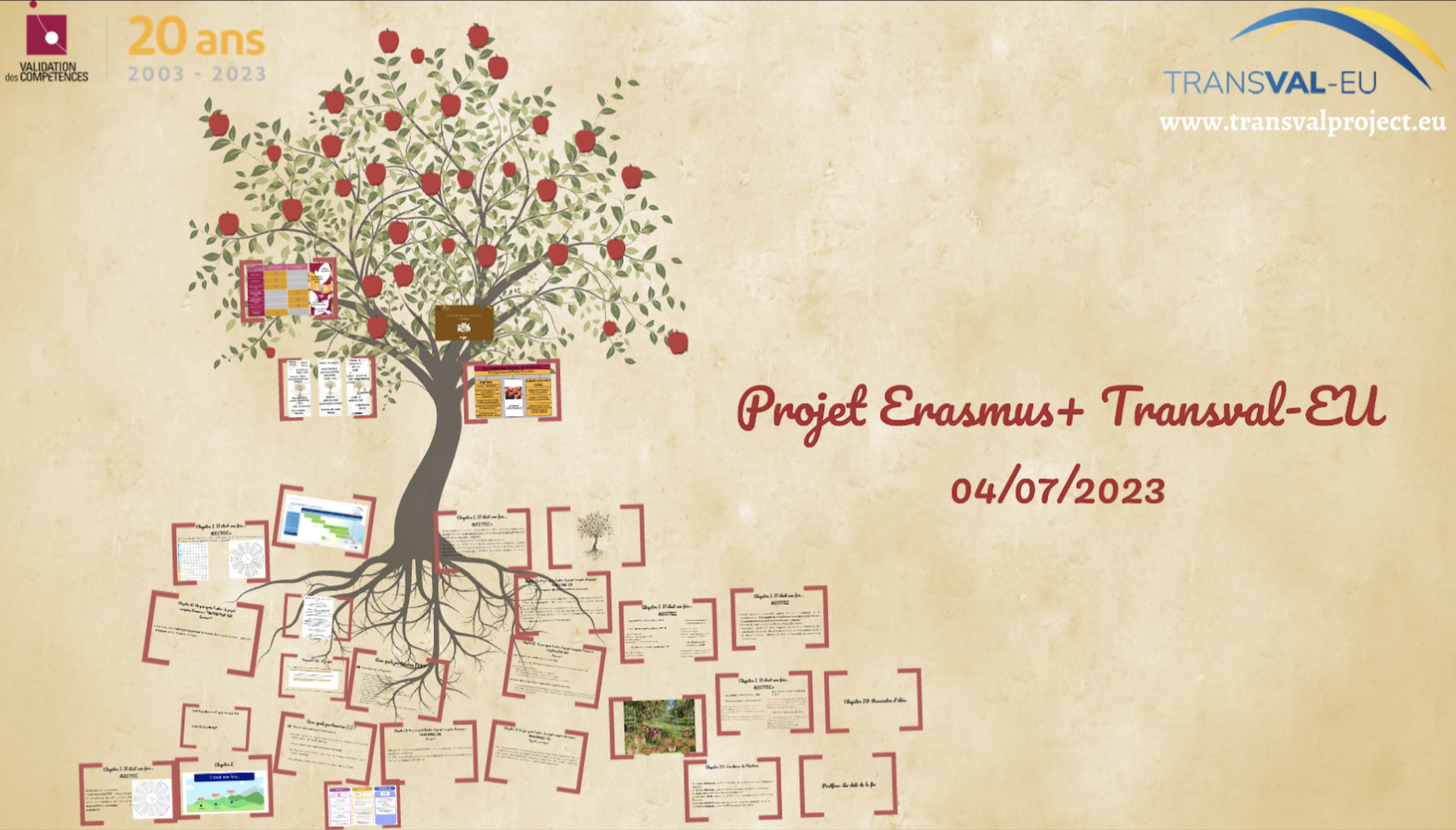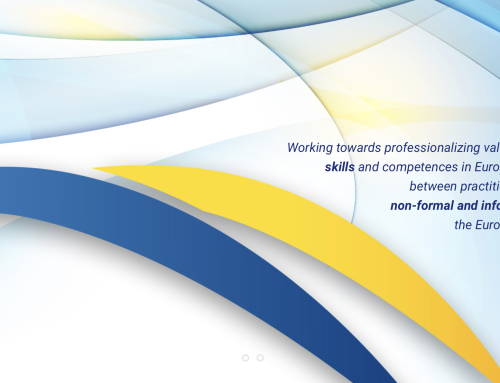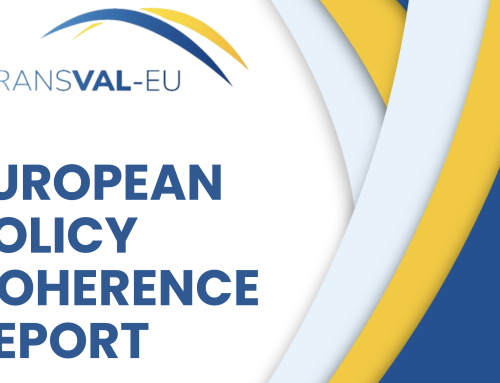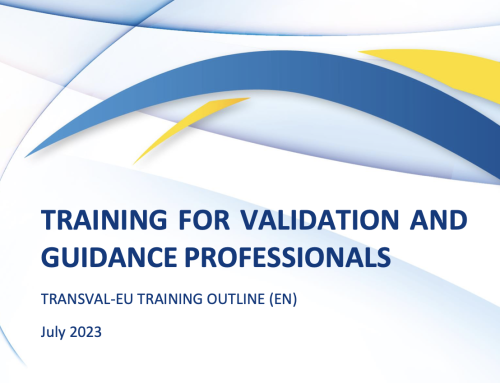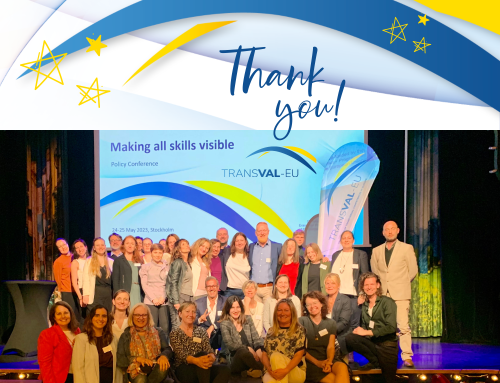TRANSVAL-EU project is coming to an end: Final impressions from French-speaking Belgium
The framework of the project
As you know, TRANSVAL-EU is an Erasmus+ project with a duration of two and a half years (March 2021 – August 2023), which is part of Key Action 3 of the Erasmus+ programme, “Support to policy development and cooperation”.
The general objective of the project
Integrate transversal skills into the various validation and guidance systems of the project member countries.
The specific objective of the Consortium de validation des compétences
Enrich and strengthen the guidance stage, by integrating into the guidance interview the transversal competences that are important to succeed in the practical validation test. The starting hypotheses were that transversal competences play an important role in the success of the practical skills validation tests, but they are implicit in the skills validation process. Therefore, a better identification of the candidates’ transversal competences, as part of the guidance interview, would increase their chances of passing the tests.
The field trials
Six Competence Validation Centres (Centre de validation bruxellois des métiers du tertiaire, Centre de validation bruxellois des métiers de l’HORECA, Centre IFAPME Namur-Brabant Wallon, Centre IFAPME in Charleroi, CESEP in Nivelles, an external site of Centre IFAPME in Charleroi, Centre EPS Huy-Waremme) and 1 Local Mission (in Schaerbeek) joined the project.
The first stage of the project included “discovery” workshops (of the project, its objectives, as well as the transversal competence framework).
During the second stage, a work was carried out to identify transversal competences, in connection with the tasks of 13 units of competency in 8 occupations proposed for validation by the Centres: administrative employee, receptionist agent, call center operator, gardener, barman(maid), waiter(tress), head waiter(tress). For each transversal competence that was identified, a proficiency level has been defined, based on the level descriptors of the transversal competence framework. At the end of the field trials, 13 transversal competences tables, corresponding to the 13 units of competency of the occupations subject to the field trials were designed.
The third stage of the field trials was represented by a reflection work on the guidance interview, with a focus on the positioning tools used. The Centres then integrated or adapted the dimension “transversal competences” in their positioning tools, if this was not already the case.
Finally, the fourth stage of the field trials (which took place at the CESEP in Nivelles and the Local Mission in Schaerbeek) focused on working with the candidates, who had to assess their transversal competences related to the task for the occupation of administrative employee that they would pass. This step has made it possible to better investigate the candidates’ transversal competences, through their integration in the pre- and post-test guidance interview.
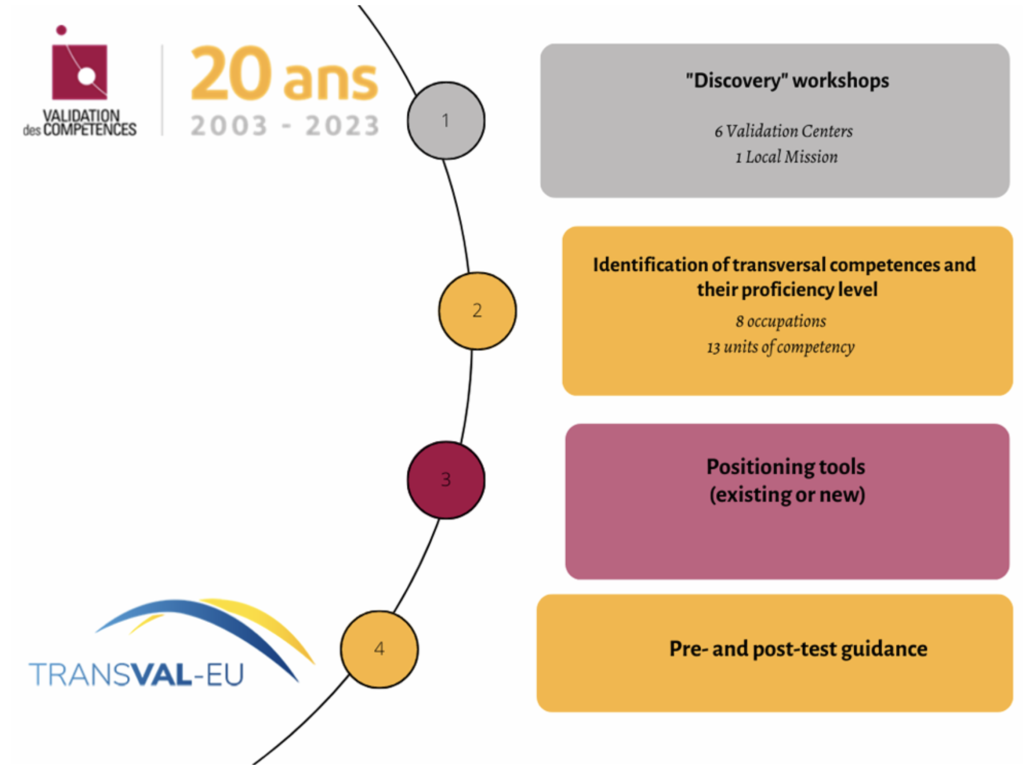
The closing event
On July 4, 2023, a closing event of the project gathered, for 2 hours, around a virtual table, about fifty participants, partners of the Consortium and staff of the Executive Cell: accredited Centres, the socio-professional integration field, the professional sectors, representatives of public educational, vocational training and employment institutions, as well as a representative of the Government of Commission communautaire française. This event was an opportunity to present the results of the project, through testimonials from the Centres and the Local Mission in Schaerbeek that conducted the field trials, but also to exchange on the topic of transversal competences.
The various testimonials highlighted the crucial role of transversal competences in the success of the practical validation test, as well as the work carried out during the field trials:
- Sophie Acquisto, from the CESEP in Nivelles, noted the importance of transversal competences: „We realised that we needed to deepen these transversal competences much more, because it is often these competences that candidates lack in the validation tests. […] In guidance, we enriched the positioning tool, because we realised that several transversal competences were not included in it. […] We are also much more precise in post-guidance regarding the types of errors.”
- Noémie Nicolas, from the Centre de validation bruxellois des métiers du tertiaire, explains that transversal competences were implicit in the guidance process before the project: „From the moment we become aware of transversal competences, […] we will naturally include them in the pre- and post-guidance interview.”
- Frédéric Verdin, from the Centre IFAPME Namur-Brabant wallon, underlines the complementarity of the two types of competences: “Transversal and technical competences are intrinsically linked […]. The TRANSVAL-EU project allowed us to approach and integrate transversal competences into the guidance, so it is really a great added value to our work. »
In addition, avenues for enrichment are also envisaged, in connection with methodological developments, based on the field trials, in particular the integration of transversal competences in the Annexes to the validation frameworks and the positioning tools used for guidance for the new occupations.
As a conclusion, Donat Carlier, Director with the Consortium de validation des compétences, highlighted the integration of the transversal competences dimension in the Consortium’s Strategic Orientation Document for the period 2025-2029. He also highlighted a series of other elements:
- The dialogue that has started on the issue of transversal competences;
- The exchanges on sharing tools;
- The confirmation of the project’s starting hypotheses through the field trials;
- The fact that the practitioners involved in the field trials went beyond the hypotheses, already taking ownership of the tools created.
This project is fully in line with the European Year of Skills and brings a response to the two strands of the Pact for Skills, namely the need of the public in terms of “upskilling” and “reskilling”.
